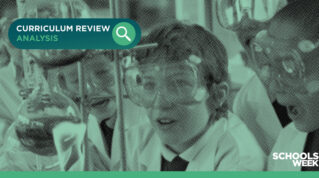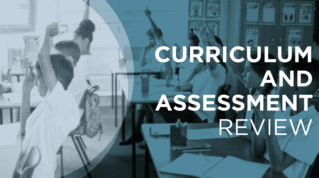Our education system’s foundational commitment to high academic standards is essential for students’ futures. It underpins what goes on in schools.
Good grades open doors to university places and apprenticeships, the jobs market and successful careers, and opportunities that might otherwise be closed.
The rigorous assessment framework that measures these standards has been vital in driving school improvement and has helped give young people access to the knowledge and skills they need to succeed.
Yet there is a growing consensus – among educators, employers and young people themselves – that while grades are crucial, they are not enough to guarantee lifelong success.
Beyond academic success, schools must deliberately foster qualities like resilience, motivation and problem-solving.
So Outwood Grange Academies Trust has partnered with the High Performance Foundation – to place personal development firmly at the heart of the curriculum.
‘We need to teach young people life skills’
Our partnership represents a shared conviction: that every student deserves the opportunity to develop not just the knowledge they need but also the resilience, the confidence and the mindsets that will mean they can thrive in our ever more complex world.
The challenges for young people today are greater than at any time over the last 100 years – and probably longer.
Children were hardest hit by Covid; its legacy persists. They are navigating a rapidly changing jobs market. Social media and mobile phones present new and unique pressures; few parents – understandably – are equipped to guide their children through these. They are experiencing a mental health crisis. And that’s just for starters.
Straight 9s should be celebrated, of course. But we also need to teach young people life skills if they are to manage what is in front of them.
Through our collaboration, we’re integrating the High Performance Foundation’s Game Plan programme into Outwood’s personal development curriculum.
Game Plan uses the power of story-telling and role models from the High Performance podcast to help students build crucial life skills. The programme has already supported 28,000 young people, and hopes to reach one million by 2030.
‘A shift in the curriculum’
We are focusing on three essential areas.
The Transitions module helps students navigate pivotal moments in their lives, such as moving from primary to secondary, or preparing them to leave school and join the work place.
The Employability module equips young people with practical skills that employers say they value: communication, problem-solving, teamwork and taking initiative.
Finally, the Mindsets module builds mental strength and resilience, helping young people develop the emotional intelligence to overcome setbacks and maintain wellbeing through disappointments.
Topics range from motivation and goal-setting to handling pressure and working effectively with others.
Real stories from high performers across sport, business, entertainment and so on are also added to the mix – meaning youngsters hear directly from people who have faced adversity, have overcome obstacles and have developed the mindsets that enable success.
This partnership reflects a fundamental shift in Outwood’s curriculum.
We consulted extensively with our students, we listened to what they said they needed to flourish and we incorporated their input.
‘Heartset, mindset and skillset’
Alongside the Outwood-High Performance partnership, this means we have created a bespoke curriculum that places personal development and holistic growth at its heart, alongside academic excellence.
We talk about developing heartset, mindset and skillset in our students.
Heartset encompasses values, empathy and sense of purpose.
Mindset covers resilience, growth trajectory and mental wellbeing.
Skillset includes academic knowledge and practical capabilities.
All are as important as each other and they feed each other. Students with resilience can engage with challenging academic content; strong communication skills give them the confidence to participate in lessons.
These are skills employers want as much as good grades. Universities want students with strong personal development. And young people say their sense of self-worth grows when they develop these skills.
They are skills which help pupils do best in exams, which can secure them the jobs they want, which allow them to maintain healthy relationships, which help them navigate challenges and which mean they can contribute positively to their communities.
In short, they are equipped to be their best selves.

















Fully agree with this sentiment, however, the subjects that provide students with many if those skills have been squeezed by the drive for academic outcomes in core and EBacc subjects. It’s laughable, bordering on offensive, that new programmes are being funded to step in to a gap created by years of neglect and under resourcing.